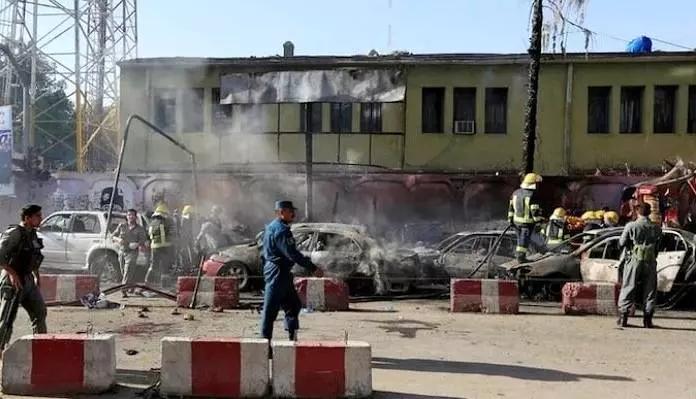RASC News Agency: The Indian publication The Print has alleged in a recent report that the Haqqani Network maintained ties with ISIS-Khorasan (ISIS-K) in past years, enabling the two groups to jointly carry out suicide attacks in Kabul over the last two decades. The report claims that covert agreements between the Haqqani Network and ISIS-K allowed for coordinated operations, including joint assaults and suicide bombings in targeted areas. According to The Print, an agreement was reached between the two groups in 2017 in Afghanistan’s Zabul province to collaborate on executing suicide attacks in Kabul. Furthermore, in 2018, the Haqqani Network reportedly facilitated a “secret pact” between ISIS-K and Pakistan’s Inter-Services Intelligence (ISI). This deal allegedly permitted ISIS-K to operate freely within Pakistani territory on the condition that it refrained from carrying out attacks within Pakistan. Following this arrangement, ISIS-K redirected its focus toward launching intensified attacks within Afghanistan.
In response to the recent assassination of Khalil Haqqani, some Taliban opponents argued that ISIS-K was not the true perpetrator, suggesting that it had been paid to claim responsibility. These opponents attributed the assassination to Kandahar-based Taliban leadership, framing it as an outcome of internal power struggles. The editor of The Print, however, contended that Khalil Haqqani’s killing was far more than a simple act of terrorist revenge. Instead, it occurred amidst intensifying factional rivalries within the Taliban. This event, according to the report, has the potential to deepen internal divisions within the Taliban and provide ISIS-K with a strategic opening to expand its influence across Afghanistan and the region.
The report also highlights the assassination’s potential to trigger significant international repercussions, drawing parallels to the emergence of Jalaluddin Haqqani, Khalil’s brother, as a key figure in regional militancy decades earlier. Given the Haqqani Network’s long history of collaboration with various terrorist organizations and its intricate ties with regional powers, The Print emphasizes that these developments could directly impact global security dynamics. The publication further underscores that, despite changing circumstances, the Haqqani Network continues to maintain clandestine ties with ISIS-K, perpetuating a complex and volatile relationship that poses ongoing threats to the region and beyond.






